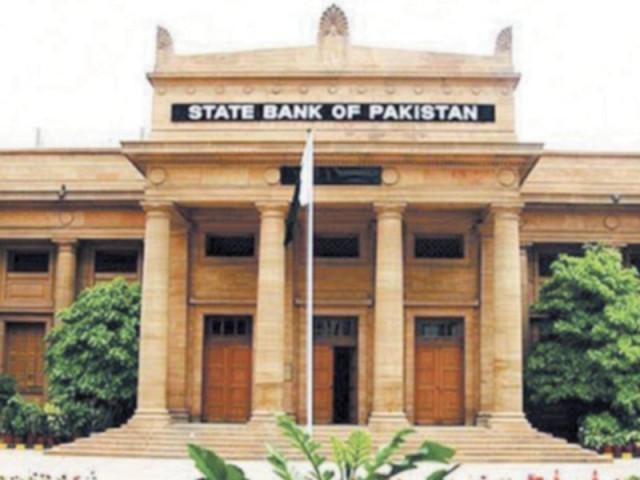Financial prudence: Stricter banking regulations to come into effect soon
Basel III tightens regulatory squeeze with addition of Capital Conservation Buffer.

Analysts say that partial implementation of Basel III is not likely to have a major impact on the country’s banking sector, at least in the short-term. PHOTO: FILE
In line with the State Bank of Pakistan’s directives about the implementation of Basel III − a set of international reforms designed to improve regulation, supervision and risk management in the banking sector – Pakistani banking institutions are expected to adopt the comprehensive reform package from December 31 in a phased manner.
With its full implementation expected by December 31, 2019, analysts say that partial implementation of Basel III is not likely to have a major impact on the country’s banking sector, at least in the short-term.
Speaking to The Express Tribune on Tuesday, Syed Faizan Ahmed, analyst at Shajar Capital Research, said the implementation of Basel III will be a ‘non-event’ as far as large banks are concerned. However, with tighter capital adequacy requirements in place, the reduced dividend capability of some mid-tier and small banks can induce fears in coming years, Ahmed added.

Under Basel III, which was first drafted by the ‘Basel Committee on Banking Supervision’ in 2009 in response to the 2008 recession, banks must maintain adequate leverage ratios and meet certain capital requirements. Preceded by Basel I and Basel II, Basel III aims to create higher resilience at the individual bank level while trying to minimise the risk of system-wide shocks.
Shajar Capital had reported last week that all banks are expected to submit Capital Adequacy Ratio (CAR) returns in parallel run with Basel II in the third quarter of 2013. However, starting from the last quarter of the year, returns are required to be filed under new regulations.
“Major changes under the Basel III reform package pertain to CAR. Previously under Basel II, the total minimum capital banks had to maintain was 10% of their total risk-weighted assets (RWA), while under the revised Basel III requirements, an additional Capital Conservation Buffer (CCB) has been introduced,” it wrote on October 3.
Explaining the changes, Ahmed said that definitions of various ambiguous terms have been refined in the new set of regulations. One such example is that of “Tier 1 capital,” a term used to describe the capital adequacy of a bank. While doing away with the category of Tier 3 Capital altogether, the definition of Tier 1 Capital has been revised under Basel III, Ahmed said.
Similarly, there was no CCB in Basel II, which has now been introduced under the new set of regulations to better deal with capital adequacy issues.
Based on their unconsolidated annual financial reports, CARs of some of the banks are: National Bank (16.4%), Allied Bank (16.1%), Habib Bank (15.1%), MCB Bank (22.1%), NIB Bank (12.9%), Bank Al Habib (15.9%), Meezan Bank (14%), KASB Bank (-0.6%), Soneri Bank (12.4%), Faysal Bank (10.7%), Bank Alfalah (12.6%), and Silk Bank (5.7%).
In a story published on September 21, The Express Tribune named the four banks, including one state-owned entity, which are not expected to meet the regulatory requirement of minimum CAR by December 31. These banks are Summit Bank, KASB Bank, Silk Bank and Bank of Punjab.
“Excluding the four banks that have come under the limelight with regard to their inability to meet the mentioned regulatory requirements, we see no new bank that fails to meet the CAR criteria for 2013,” according to Ahmed. However, as the Basel III implementation rolls further, Ahmed added that some mid-tier banks need to focus on increasing their capital base, as the CAR requirement will be gradually increased to 12.5% by the end of 2019.
Published in The Express Tribune, October 9th, 2013.
Like Business on Facebook, follow @TribuneBiz on Twitter to stay informed and join in the conversation.



















COMMENTS
Comments are moderated and generally will be posted if they are on-topic and not abusive.
For more information, please see our Comments FAQ